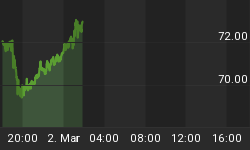The Prudent Man Rule directs trustees to observe how men of prudence, discretion and intelligence manage their own affairs, not in regard to speculation, but in regard to the permanent disposition of their funds, considering the probable income, as well as the probable safety of the capital to be invested. Plainly stated, the Prudent Man Rule is about managing financial affairs responsibly.
In contrast to the Prudent Man Rule, the Federal Reserve and the Treasury Department have been making a public push to force banks to lend under the disguise of keeping businesses and the economy moving forward. Claims have been made that without credit, companies cannot fund working capital, pay employees or invest in their businesses. However, forcing banks to lend in the middle of a deep recession will not lead to improvements in the economy, but will create even greater problems in the future.
Many banks have reported first quarter earnings this week. Two banks whose strategies contrast are Comerica and US Bancorp. In Comerica's earnings release on April 21, 2009, credit deterioration was similar to that of other banks. However, unlike many banks, loan balances have declined for the last 4 quarters. In the release Comerica stated:
Commercial and industrial loan growth has slowed sharply in all 10 previous post-World War II recessions, with actual loan outstandings falling in eight of those recessions, in inflation-adjusted terms. Companies have reduced their borrowings out of appropriate caution during this recession, as well. As a result, we have seen reduced loan demand across our geographic markets.
Comerica's assertion is logical. The government should not be pushing banks to use what are already thin levels of capital to extend new loans in the worst economic environment since the 1930's. Nonetheless, US Bancorp stated the following in its first quarter earnings release also on April 21, 2009:
Strong average loan growth of 19.6 percent (11.1 percent excluding acquisitions) over the first quarter of 2008, driven by:
- Average total commercial loan growth of 8.6 percent, principally in high quality corporate lending
- Average retail loan growth of 19.4 percent, led by credit card balances, home equity lines and student loans
The growth at US Bancorp is similar to loan growth at many large banks, indicating many banks are executing the government's mandate.
In addition to hoping that new loans can support the US economy, the Federal Reserve Chairman and Treasury Secretary have become more vocal about the prospects for the economy in hope of providing support to all asset prices from real estate to stocks. However, it is rapid loan growth by banks, such as US Bancorp, that is creating new concerns for the stock market and economy. Shareholders should ask 1) why is it necessary to distinguish that the commercial loan growth is "principally in high quality" corporate loans, rather than always 100% high quality and 2) if loan demand shrinks during a recession and retail sales are currently falling who is US Bancorp lending to at such a rapid pace?
The government is trying everything it can to improve the economy and to improve the banking system with the end goal of supporting stock and real estate prices. Yet new credit card and home equity loans are not what the economy nor the banking system needs to fix its problems. Instead of taking the tough medicine and fighting excessive credit, the government is breaking the Prudent Man Rule.
Continental Capital Advisors, LLC is not long or short shares of Comerica Incorporated nor US Bancorp.















